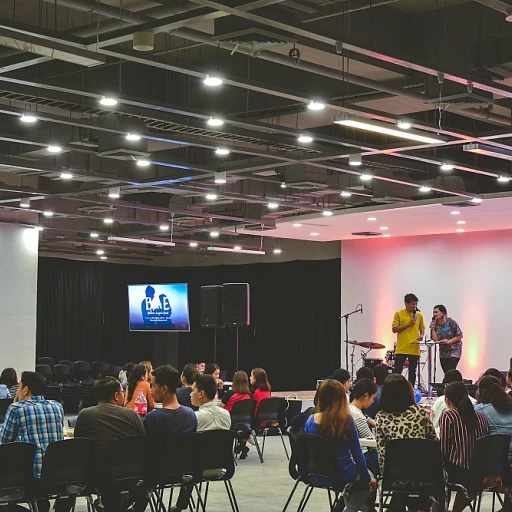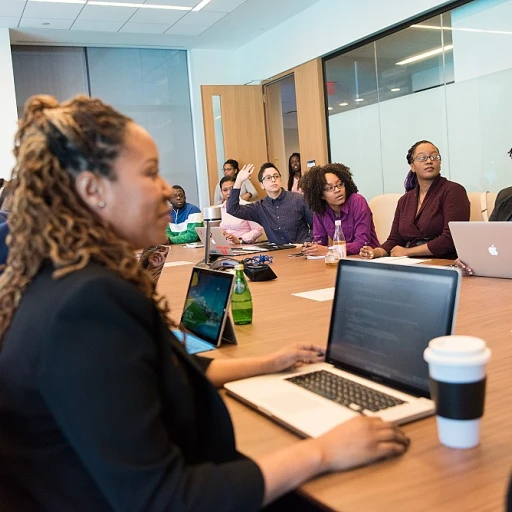
Embracing Diversity: Overcoming Cultural Challenges in NZ's Office Management
Mastering Cultural Competence in NZ Office Settings
The landscape of New Zealand workplaces is a mosaic of varied cultures, each bringing its unique perspective and value. Office managers must therefore become adept in cultural competence, a critical skill for leading multicultural teams effectively. Understanding and respecting cultural differences isn't just about harmony; it's about maximizing the rich potential of a diverse team. Statistics from Statistics New Zealand indicate that almost one in four people in the country are born overseas, highlighting the need for office management approaches that are inclusive and culturally aware.
Developing cultural competence involves continuous learning and adaptation. Managers must engage in active listening, show empathy, and garner a deeper appreciation for the nuances that different cultures bring to the workplace. Organizations that embrace this approach report not only improved team cohesion but also a boost in creativity and problem-solving abilities, owing to a variety of perspectives.
Designing Cross-Cultural Communication Strategies
Effective communication is at the heart of any successful office management strategy, more so in a multicultural environment. Setting the foundation for clear and inclusive communication within an office in New Zealand requires an understanding of various cultural communication styles. A one-size-fits-all approach will not suffice; instead, adopting tailored strategies can help mitigate misunderstandings and build a more cohesive team.
For instance, some cultures prize directness and frankness, while others value subtlety and indirect communication. Recognizing these preferences and adapting communication channels accordingly can significantly improve office management dynamics. It can be beneficial to provide communication training workshops that focus on cross-cultural understanding, thereby equipping team members with the skills to interact effectively with their colleagues from different backgrounds.
Championing Cultural Awareness through Leadership
The role of leadership in setting the tone for cultural awareness cannot be overstated. Office managers must lead by example, demonstrating an appreciation for diversity in all aspects of office management. By highlighting the benefits of a multicultural workforce, such as improved decision-making and a broader range of ideas, leaders can motivate their teams to embrace diversity proactively.
Furthermore, management can acknowledge cultural events, allow flexible working hours during cultural festivities, and even integrate cultural education into the office environment. Such actions speak volumes about a company's commitment to fostering an inclusive workplace and often result in higher employee satisfaction and retention.
Utilizing Advanced Tools for Diverse Workforce Management
In today's technologically advanced world, numerous tools can aid in the management of a culturally diverse office. Project management software, collaboration platforms and even AI-driven diversity training modules offer innovative methods for enhancing workplace inclusivity. The key is to select tools that not only streamline office management tasks but also support the nuances of a multicultural team.
Investing in technology that enables seamless communication, collaboration, and education is an investment in the cultural health of an organization. The goal is to create an environment where all employees, irrespective of their cultural background, feel valued and understood. This technological approach can bridge the cultural gaps that sometimes hinder productivity and workplace morale.
Constructing Inclusive Policies: Frameworks for a Multicultural Office in New Zealand
Creating a Culture of Inclusivity in the Workplace
When it comes to fostering a multicultural office, it’s critical to develop and implement policies that are not only inclusive but also proactive in promoting diversity. New Zealand's workforce is incredibly diverse, with individuals hailing from a multitude of ethnic backgrounds, speaking various languages, and holding different religious beliefs. A study by Statistics New Zealand highlights that around 27% of New Zealand's population were born overseas, with the percentage growing in metropolitan areas like Auckland. This cultural kaleidoscope necessitates an office management strategy that is mindful, adaptable, and grounded in respect for individual differences.
Office managers are often at the forefront of constructing this kind of workplace environment. This involves crafting policies that actively support equal access to opportunities, respectful communication, and a comfortable space where every employee feels valued. For instance, recognizing cultural holidays, providing language support, and ensuring representation in decision-making can be staple aspects of an inclusive policy framework.
Integrating Multicultural Norms into Everyday Office Operations
The day-to-day operations of an office can provide tangible opportunities for multicultural integration. Office managers can lead by example, creating an atmosphere where diversity is not just tolerated but celebrated. Scheduling multicultural potlucks, promoting language exchange sessions, and facilitating cultural competence training are practical steps that help bridge differences and enhance collaboration.
To illustrate, Google's office in Auckland reflects a commitment to embedding cultural values into their daily operations with programs geared towards supporting Maori and Pacific languages. By adopting similar strategies, office managers can create a workspace that acknowledges the rich tapestry of its team members' backgrounds, optimizing productivity, and fostering a sense of community.
Adapting Communication and Conflict Resolution Techniques
Strong communication styles and conflict resolution techniques can vary widely across cultures. It's important for policies to acknowledge these differences and provide clear guidelines that help navigate misunderstandings and disputes. Affirming that all voices are heard and respected within the corporate setting reduces the potential for cultural conflicts and enhances the team's cooperative dynamic.
For example, incorporating a mediation process that respects cultural sensitivities can prevent escalation of conflicts. Regular training sessions on effective communication and cultural awareness can also empower team members with the skills needed to interact courteously and productively with one another, irrespective of differing cultural norms and expectations.







